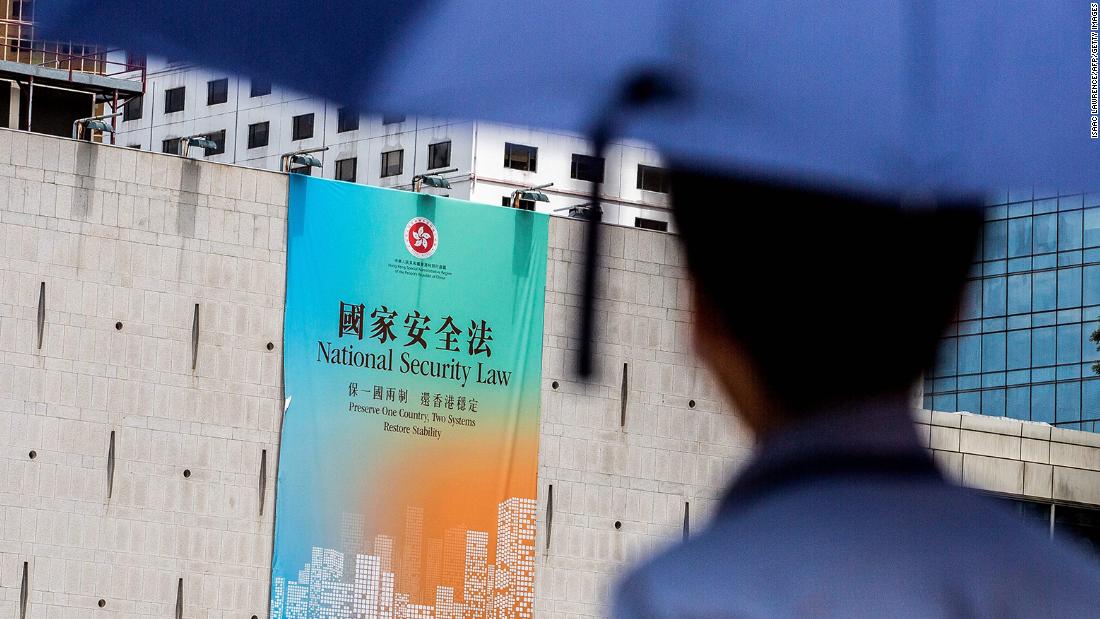
"One country, two systems"
The law's passing is expected to fuel further anger and protests in the city, which was rocked by over six months of increasingly violent anti-government unrest last year.
Opponents of the law say it marks the end of the "one country, two systems" -- a principle by which Hong Kong has retained limited democracy and civil liberties since coming under Chinese control.
Crucially, those freedoms include the right to assembly, a free press, and an independent judiciary, rights that are not enjoyed on the Chinese mainland.
Chinese Communist Party officials and state media have defended the law as vital to protecting national security in the wake of last year's protests and a 17-year failure by the Hong Kong government to pass similar legislation, since the last effort was met with mass protests in 2003.
In a blueprint of the legislation revealed by Chinese state media Xinhua on June 22, mainland Chinese officials will be allowed to operate in Hong Kong for the first time and give Beijing the power to override local laws.
In a statement last week, Lam said the law would ensure "the long-term prosperity and stability of Hong Kong," and that it would "only target an extremely small minority of people." She said the proposed bill was "in line with the rule of law" and the "rights and freedoms which are applicable in Hong Kong under the Basic Law and relevant international covenants."
According to the blueprint, Beijing will establish a national security office, staffed by mainland security services to supervise local authorities in policing the law.
He was joined by fellow activist leaders Nathan Law, who was removed from the local legislature in 2016, and activist Agnes Chow.
Wong and other activists have met with foreign diplomats and testified before the US Congress on Hong Kong's freedoms since the large-scale pro-democracy protests broke out last summer.
Rights group Amnesty International said the legislation "represents the greatest threat to human rights in the city's recent history."
"From now on, China will have the power to impose its own laws on any criminal suspect it chooses," said the head of Amnesty International's China Team, Joshua Rosenzweig.
"The speed and secrecy with which China has pushed through this legislation intensifies the fear that Beijing has calculatingly created a weapon of repression to be used against government critics, including people who are merely expressing their views or protesting peacefully," he said.
Taiwan's President Tsai Ing-wen said reports on China passing the security law "proves that 'one country, two systems' is not credible." Tsai said that Taiwan will start an office from July 1, which will "provide humanitarian aid for our friends in Hong Kong."
In Japan, Chief Cabinet Secretary Yoshihide Suga called the passing of the law "regrettable."
On Monday, US Secretary of State Mike Pompeo announced an end to the exports of US-origin defense equipment to Hong Kong.
"As Beijing moves forward with passing the national security law, the United States will today end exports of US-origin defense equipment and will take steps toward imposing the same restrictions on US defense and dual-use technologies to Hong Kong as it does for China," Pompeo said.
We can no longer distinguish between the export of controlled items to Hong Kong or to mainland China."
This is the first action the US government has taken to upend the special status trade relationship between the US and Hong Kong, following the determination that Hong Kong was no longer autonomous from China due to Beijing imposing the national security law on the city.
